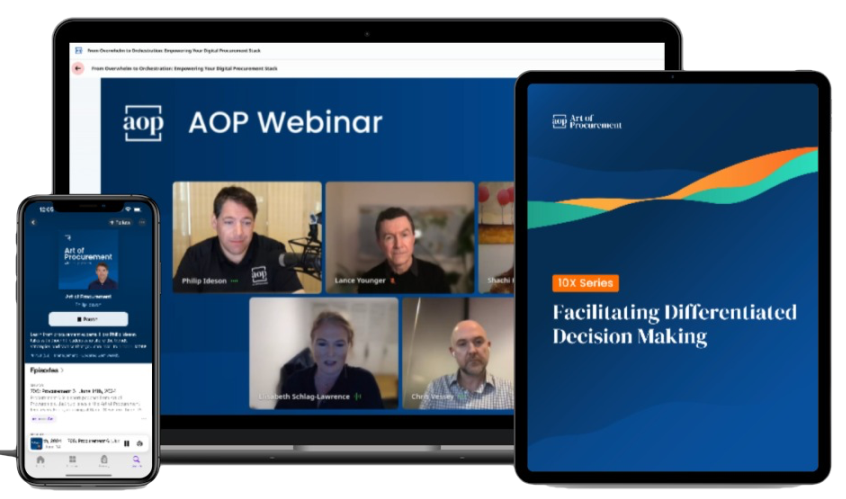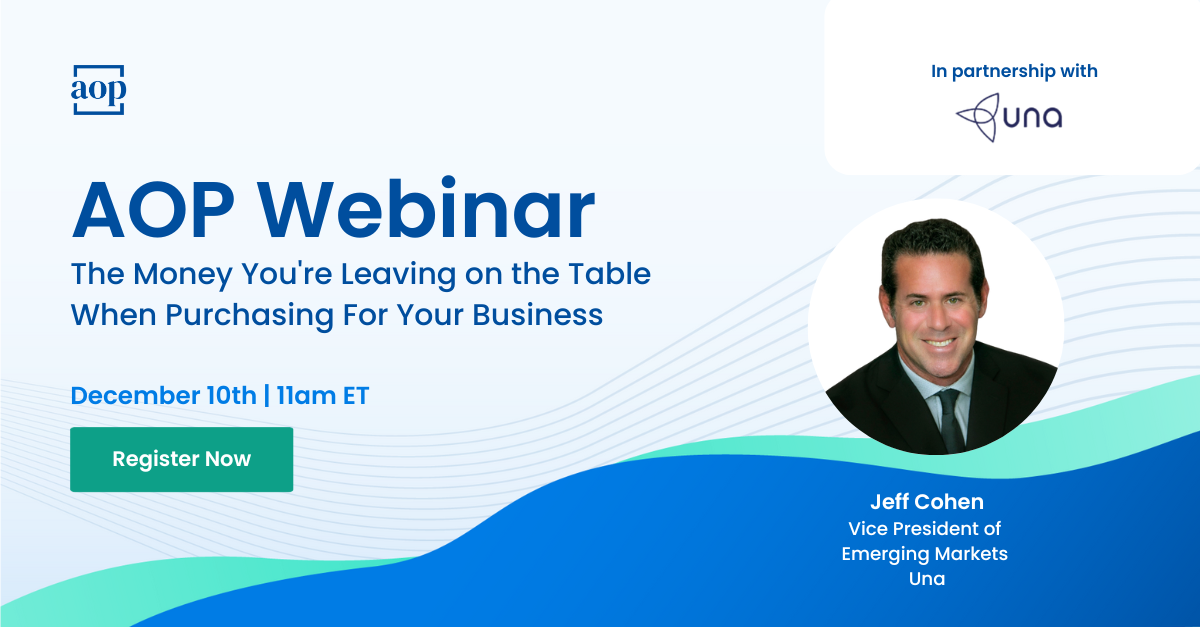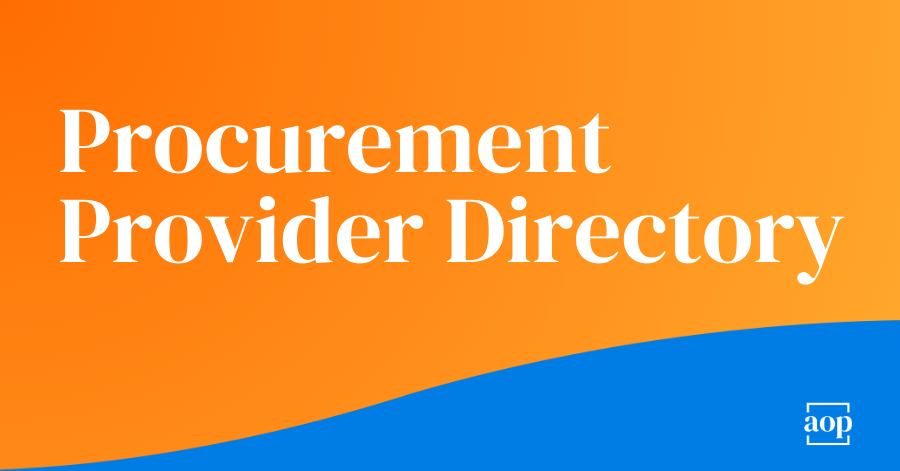We Help
Heads of Procurement, Procurement Directors, Category Managers, Sourcing Specialists, Supply Chain Leaders, Third Party Risk Analysts
Elevate their Impact
An easy to understand statement about how we help procurement leaders elevate their impact

Drive change with confidence
Podcasts, webinars, guides, and events that help you turn inspiration into action, transforming the impact of procurement

We Empower
Chief Procurement Officers, Heads of Procurement, Digital Procurement Leaders, Procurement Directors, Procurement CoE Leaders
To Drive Change with Confidence
Podcasts, webinars, guides, and events that help you turn inspiration into action, transforming the impact of procurement

Subscribe to our newsletter
Join procurement leaders from more than 6,000 companies who rely on our trusted, actionable insights to deliver critical business outcomes
Start your research journey here
Unparalleled depth and real-world applicability
The Voice of Procurement
Recent feedback from AOP subscribers:
AOP provides real-world insights in an accessible way.
There's nowhere else you'll see, hear, or read such great procurement content.
Comprehensive information from a trusted source - always a must read.
The highest quality webinars and writing available on procurement issues.
AOP makes critical information easily accessible and digestible.
The podcast is as good as being in an MBA program.
The amount of free resources is awesome, the same is true about the caliber of featured guests.
Unique, well-thought-out topics with great analogies and context.
The webinars are extremely insightful - never boring or overly complicated.
Very good source of procurement updates which are often difficult to obtain elsewhere.
I haven't seen such in-depth reporting in any other publications I have access to.
AOP is a great resource to stay up to date on current trends.
I really love your editorial line.
Terrific content with outstanding writing.
Excellent, timely topics and good content.
AOP has the only real procurement insights and analysis in the market.
A breadth and depth of content that supports all, regardless of maturity level.
Excellent content and always well delivered.
Great ideas about procurement strategies and tactics.
Insightful topics from informed and experienced practitioners make AOP content hit home.
Great insights into the world of procurement, often from unusual viewpoints.
High quality discussions and knowledgeable speakers.
The articles, podcasts, and webinars are very educational.
Very informative virtual events.
Brilliant podcasts and insightful content.
In all my procurement training courses, I always recommend that delegates sign-up.
I find your content very engaging.
A meaningful collection of resources that provide something for everyone.
I love the diversity of thought.
Never miss an opportunity for impact
Sign up to receive exclusive content and first-mover opportunities to access new content and events




.png?width=125&height=125&name=In%20person%20(1).png)




.png)
